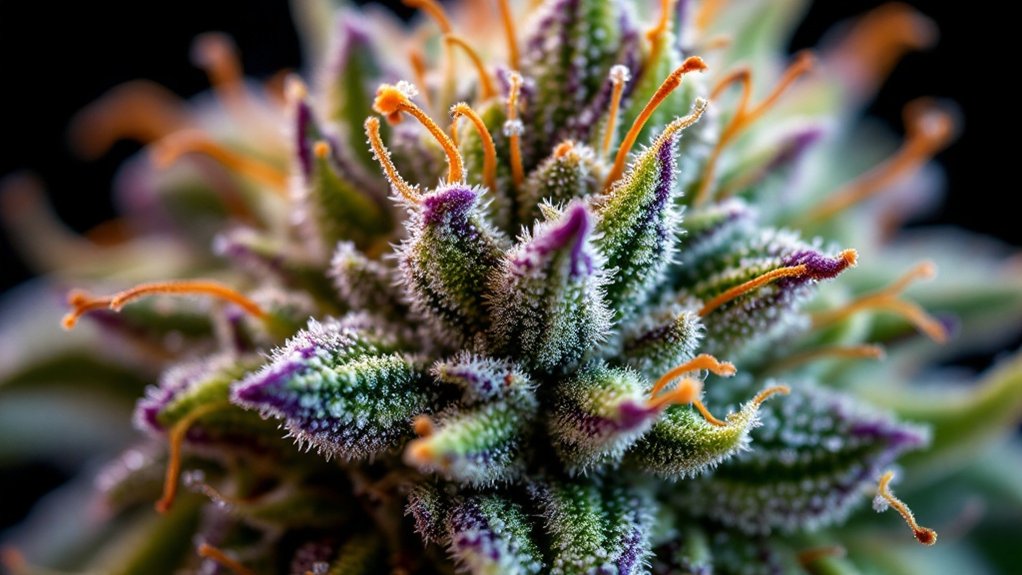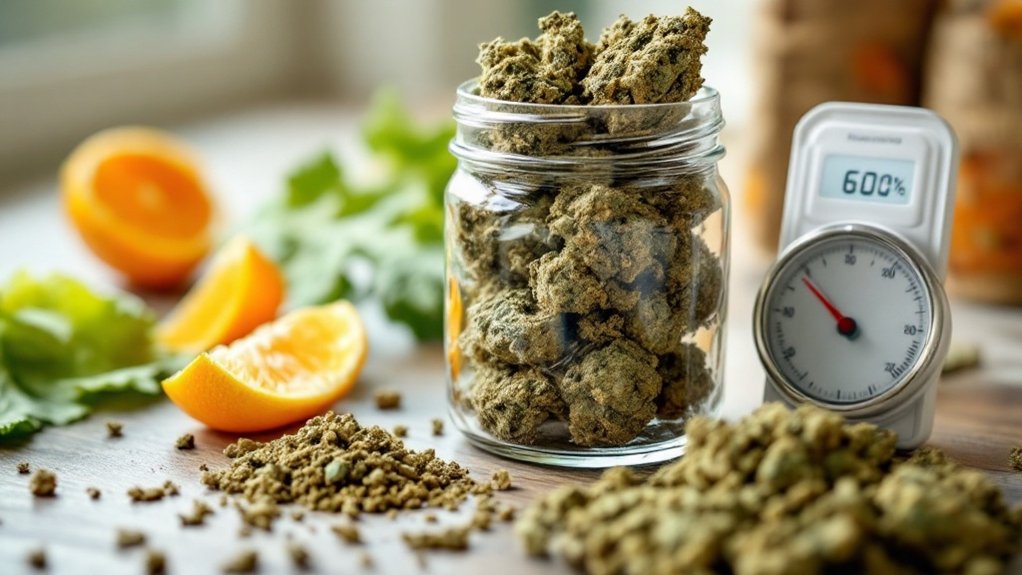Cannabis cultivation careers remain robust despite industry job losses of 3.4% in 2024. Director positions can command up to $150,000 annually, with cultivation staying a growth sector while other areas contract. The industry’s shifting from hypergrowth to operational discipline. New markets like New York (209% job growth) and Mississippi (103%) are booming, while Arizona and Illinois tanked. These green-thumb gigs offer stability in an evolving $30.1 billion market. The opportunities beneath the canopy might surprise you.

Thousands of cannabis workers found themselves without jobs in 2024 as the industry experienced its first significant employment downturn since tracking began in 2017. The sector shed 15,443 full-time equivalent roles, marking a 3.4% decrease from 2023. Despite this contraction, cannabis sales actually increased 4.5% to $30.1 billion. Money’s flowing, but jobs aren’t.
New York added over 8,400 cannabis jobs, a staggering 209% increase, while Mississippi doubled its cannabis workforce with 103% growth. Meanwhile, Arizona plummeted with a 52% job loss, and Illinois dropped 25%.
While New York and Mississippi cannabis scenes explode with growth, Arizona and Illinois plummet. Surprise – retail presence actually matters.
Cultivation careers remain a bright spot in this hazy landscape. Director of Cultivation positions can command salaries up to $150,000 or more annually. Not bad for working with plants.
But the industry’s shifting from its wild “hypergrowth” phase to something resembling adult supervision “operational discipline,” they call it. Many companies are pivoting to temporary and gig workers instead of full-timers. Flexibility matters when your market’s going through puberty.
Mature markets like California, Colorado, and Illinois are obsessed with efficiency now. The romance is over; it’s time to make money.
The industry isn’t dying though, it’s resetting. Analysts expect U.S. cannabis to reach almost $45 billion by 2027. California’s only reached about 83,000 jobs of a potential 133,000. New York, New Jersey, and Virginia are barely scratching their potential. The problem? Converting those legacy market consumers to legal channels.
Women are increasingly influential in the space, with more than one in three women over 21 consuming cannabis. The industry contributed approximately $115.2 billion in economic impact despite its growing pains.
Cannabis farming isn’t just surviving, it’s evolving. Mature markets are recalibrating while emerging regions explode with growth. The strategic staffing models are reshaping how companies approach hiring and retention in this volatile market. The influx of tax revenue has been substantial, with cannabis generating nearly double the taxes of alcohol nationwide. Globally, the industry continues to expand as nearly 50 countries have implemented some form of cannabis legalization. The plant remains the same, everything else is changing.
Frequently Asked Questions
Do Cannabis Farm Jobs Require Drug Testing?
Yes, cannabis farms typically conduct drug testing despite the irony.
Most facilities test for “hard” drugs like opioids and heroin while specifically excluding THC from disqualification criteria. Makes sense, right?
Requirements vary by state – Maryland demands registration with healthcare authorities and use of approved labs.
Federal contractors and safety-sensitive positions face stricter rules.
Bottom line: expect testing, but your positive THC result probably won’t cost you the gig.
What Safety Hazards Exist in Cannabis Cultivation Facilities?
Cannabis cultivation facilities can be risky environments.
Workers face biological hazards like mold exposure and plant sensitizers. Chemical threats? Plenty. Pesticides, fertilizers, and cleaning agents can cause everything from skin irritation to respiratory problems.
Let’s not forget physical dangers – burns, electrical hazards, machinery accidents, and those repetitive trimming motions wreaking havoc on bodies.
Environmental conditions aren’t great either. High humidity, poor ventilation, slippery surfaces. Not exactly OSHA’s poster child for workplace safety.
Can Felons Work in Cannabis Cultivation?
Felons face a patchwork of rules in cannabis cultivation. It depends where you live.
Colorado reviews applicants case-by-case, while New York generally says no without special certificates. A history of violent offenses or drug trafficking convictions will definitely limit your ability to get hired.
Background checks are standard everywhere. Some states do offer waivers or exceptions, especially for non-violent, marijuana-related offenses.
The industry’s still evolving on this front.
How Does Seasonal Employment Affect Benefits and Job Security?
Seasonal workers in cannabis face a harsh reality: virtually no benefits or job security.
Companies running “slimmer crews” save costs by hiring temps without health insurance or paid time off. These workers are disposable assets. High turnover is expected.
When harvest ends? You’re gone. The industry’s 2% job decline since 2022 makes competition fierce.
Temporary employees fill gaps but get none of the perks. That’s the brutal truth.
Are There Unionized Positions in the Cannabis Cultivation Industry?
Yes, unionized positions do exist in cannabis cultivation. The United Food and Commercial Workers (UFCW) represents thousands of cannabis workers nationwide.
These union jobs pay considerably better, as well. Cultivation workers earn over $7,000 more annually than their non-union counterparts. Pretty sweet deal.
Six states even have laws encouraging Labor Peace Agreements in the cannabis industry. Union members also enjoy stronger benefits and workplace protections.
Rare good news in today’s labor landscape.










